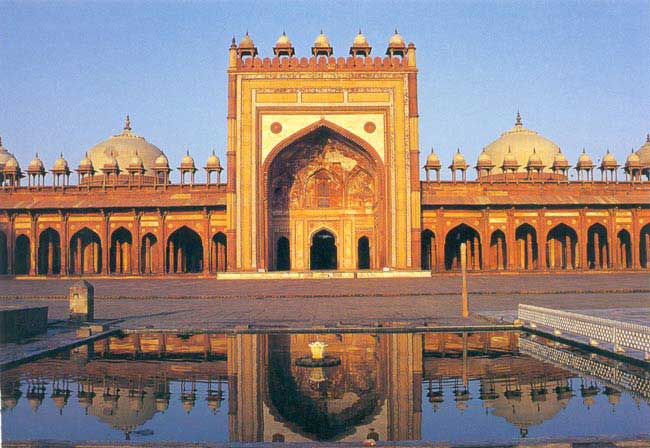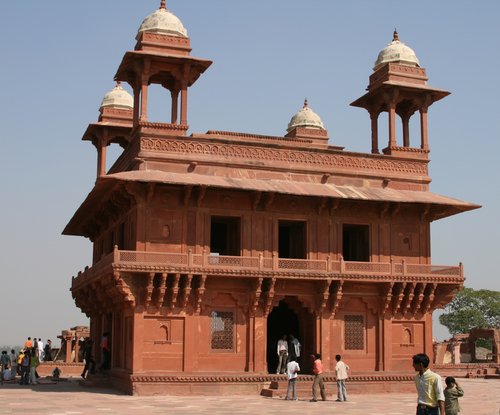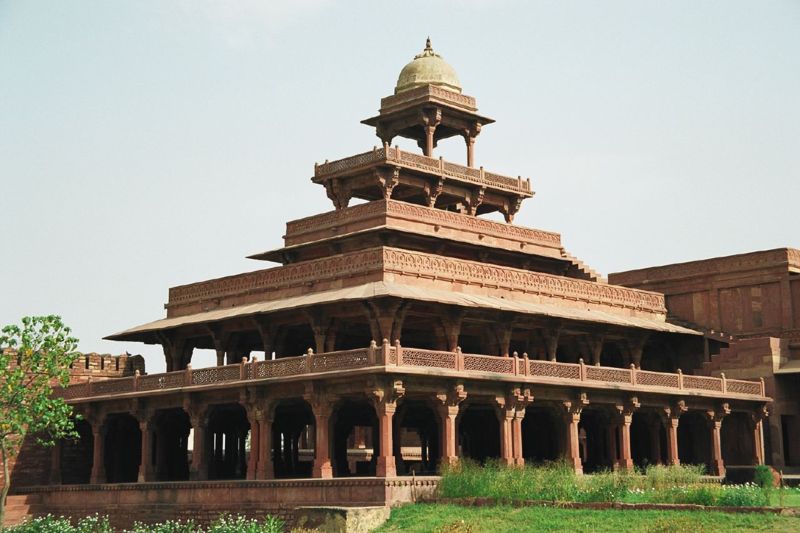
Akbar’s greatest architectural achievement was the construction of Fatehpur Sikri, his Capital City near Agra. The construction pf the walled city was started in 1569 A.D. and completed in 1574 A.D. contained some of the most beautiful buildings – both religious and secular which testify to the Emperor’s aim of achieving social, political and religious integration. The religious edifices worth mentioning are the Jami Masjid and Salim Chisti’s Tomb. The tomb built in 1571 A.D. in the corner of the mosque compound is a square marble chamber with a verandah. The cenotaph has an exquisitely designed lattice screen around it.

The secular ones include Jodh Bai’s palace, the Panch Mahal, the Diwan-i-khas and the Buland Darwaza. Jodha Bai's palace is a large building consisting of rooms on all four sides of a courtyard. The centre part and four corners of the building are doubled storeyed. A small chapel attached has niches in the wakks for idols. The panch Mahal is a five stored structure, each storey smaller in size as they go up, the last one being only a kiosk.









This is really very nice collection. In India we get to see many more such historical architects each of it are reflection of preserved Indian Culture and heritage.
ReplyDelete